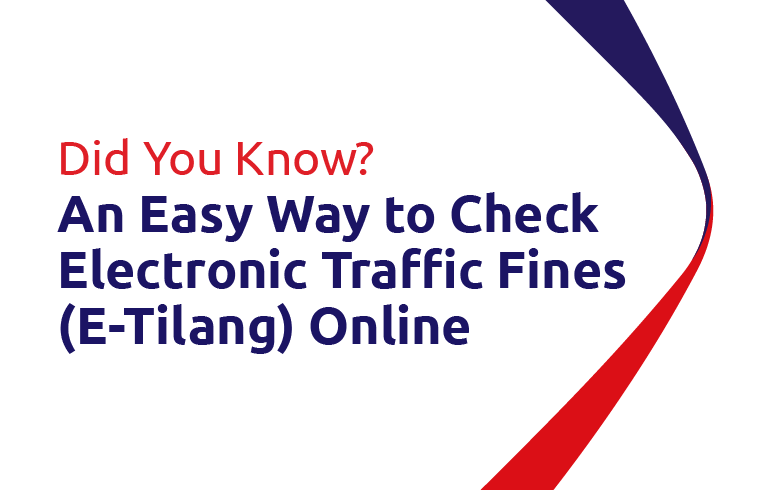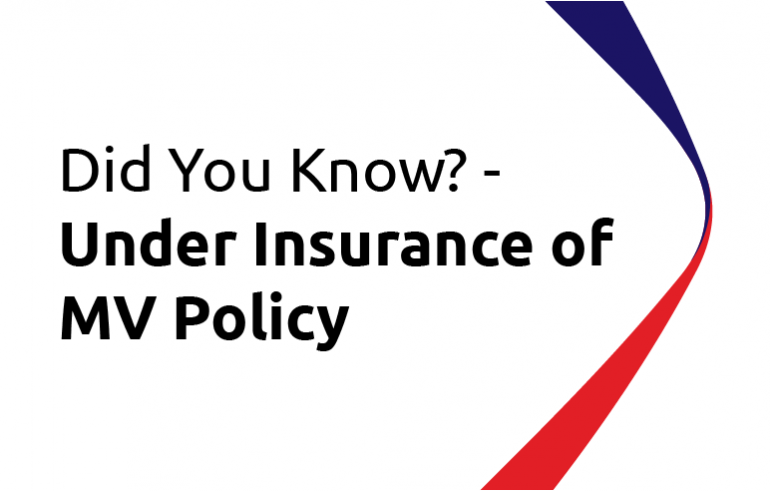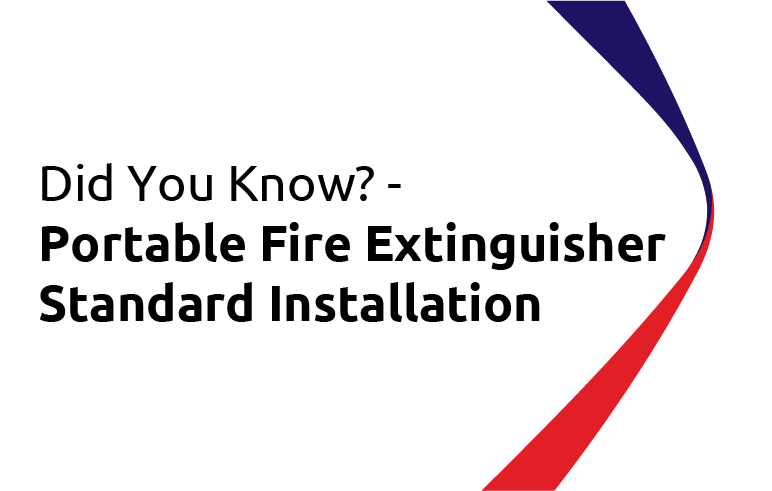Did You Know? - The Importance of Knowing the Proper Car Tire Pressure
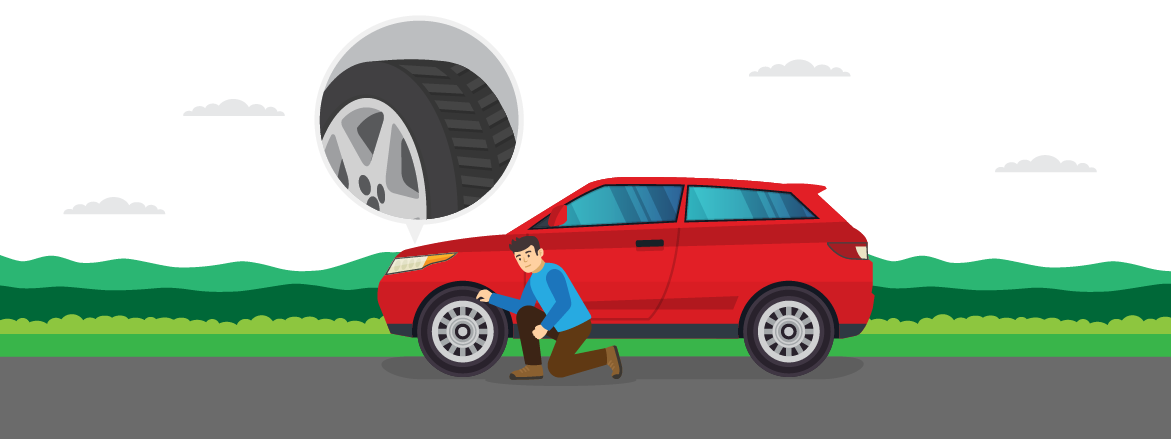
Air pressure in car tires is critical to maintaining vehicle performance, safety, and fuel efficiency. When tires have the proper pressure, the vehicle will be more stable on the road, the brakes will work more effectively, and fuel efficiency will increase. However, not all car owners realize the importance of regularly checking and maintaining tire pressure.
So, what should you pay attention to, and what is the ideal air size for car tires? The following is the explanation:
Safety: Low tire pressure leads to more of the tire's surface area touching the ground, thus causing more friction between the tire and the road. More friction means more wear, more heat, and more often, all of which put your tires at risk for tread separation, a tire blowout, and a severe accident.
Comfort: When tire pressure is too high, fewer tires will touch the ground, making your ride feel "harder" and bouncier. Your vehicle's traction and stopping distances can suffer, and you'll likely feel every bump on the road.
Longevity: Improper tire pressure can lead to uneven and premature wear, whether under or overinflated. Properly inflated tires typically last much longer than improperly inflated ones, meaning you won't have to buy new tires as often.
Fuel Efficiency: Incorrect tire pressure can make your head to the pump more often. You can improve your gas mileage by up to 3% simply by keeping your tires inflated to the proper pressure.
How to Check and Fill Tire Pressure
Checking and filling tire pressure is often overlooked in vehicle maintenance. Proper tire pressure ensures driving comfort and safety and helps optimize fuel efficiency and extend tire life. Here are some easy tips to check and fill tire pressure to keep your vehicle in good condition.
Routine Checks: Carry out regular air pressure checks using an accurate gauge that matches your vehicle's specifications at least once a month or before travelling long distances.
Follow Manufacturer's Recommendations: Air pressure in car tires varies depending on the type of car and tires used by the manufacturer. Usually, the recommended air pressure is stated in the vehicle manual or on a sticker affixed to the car door or door frame.
Each type of car has different air pressure requirements. The following is information on car tire pressure standards that are found often in Indonesia:
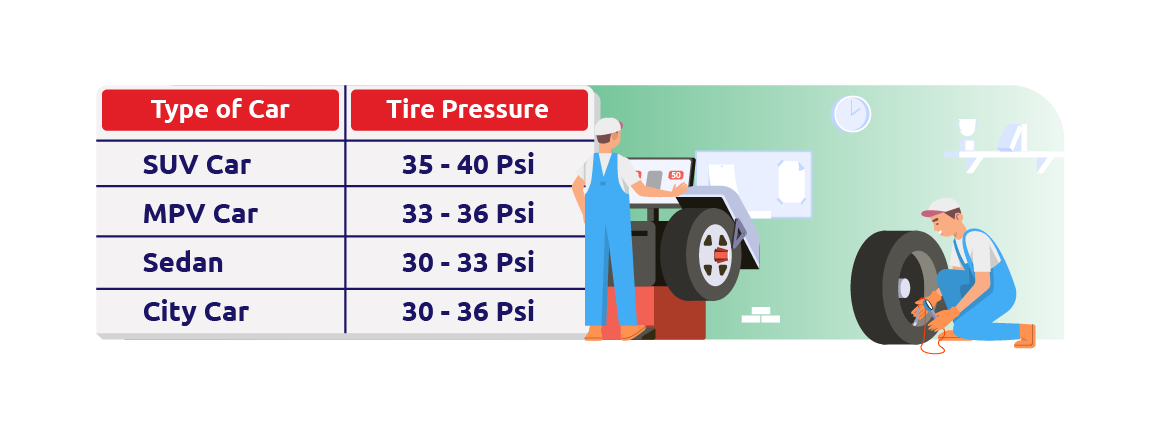
The Maximum Limit for Air Pressure Load on Tires: Maximum air pressure load on car tires is on average 50 Psi. However, what needs to be paid attention to is that the maximum load required in car tires is the maximum air pressure limit that can be filled, this does not mean that it can be filled to 50 Psi. It is possible to increase the air pressure from the ideal specifications, a maximum of 4 Psi from the standard. So, if the specification is 32 Psi, it can be filled up to 36 Psi. Usually this is needed if the car is rarely used or when travelling long distances so that it doesn't deflate easily, but the consequence is that the dings become hard.
Adapted to Conditions of Use: The air pressure in car tires needs to be adjusted to conditions of use, such as vehicle load and weather situations, for example:
- Conditions when carrying passengers or excessive cargo, the air pressure in the tires needs to be increased according to the recommended maximum capacity.
- Wet road conditions, it is recommended to reduce the air pressure slightly so that the tires have more contact with the road surface, increasing traction and vehicle control.
- The air pressure on the front and rear car tires differs, different roles and loads also make the pressure different. The front tires are responsible for controlling the direction of the vehicle and handling braking. Therefore, the air pressure on the front tires is usually higher than the rear tires.
Hopefully, the information above can enrich your understanding of the importance of knowing the proper car tire pressure. If you need further explanation regarding the terms and conditions of the policy, please contact us at 021 - 2523110 and we will be happy to assist you.

